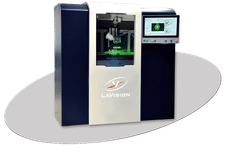Polytos project launched by the “Forum Organic Electronics” excellence cluster
BMBF-sponsored excellence cluster project “Printed organic circuits and chips” (Polytos) started; consortium headed by Merck KGaA
Merck KGaA announced that it has launched the “Printed Organic Switches and Chips“ project (Polytos) together with its partners in the excellence cluster known as the “Forum Organic Electronics“. The aim of this project, which is being sponsored by the German Federal Ministry of education and Research (BMBF) and conducted by a consortium headed by Merck, is to develop new materials, concepts, components, manufacturing processes and software for printed organic circuits with integrated sensors for applications in the packaging industry. These systems could some day be used as printed smart labels, namely intelligent and flexible transponders that are applied to a film together with their antenna and can transmit information. They are primarily used in the logistics and packaging sectors.
Aside from Merck, the consortium partners involved in the project are BASF SE (Ludwigshafen), Pepperl+Fuchs GmbH (Mannheim), PolyIC GmbH & Co. KG (Fürth), Robert Bosch GmbH (Stuttgart), SAP AG (Walldorf) as well as the University of Heidelberg, the Technical University of Darmstadt and the University of Mannheim. Copaco GmbH & Co. KG (Mainz), Innovation Lab GmbH (Heidelberg) and VARTA Microbattery GmbH (Ellwangen) are associate partners.
The consortium partners are aiming to complete the first basic demonstrators in a three-year period. The total costs of Polytos will amount to around € 13.8 million. The German Federal Ministry of Education and Research will provide funding of around € 7.2 million; the industry partners will contribute around € 6.6 million themselves.
The object of Polytos is to develop printed organic circuits with integrated sensors capable of recording data such as temperature, humidity or light exposure. Interfaces are used to read this information. These types of printed organic circuits could be used as printed smart labels in the future. Smart labels are already used today in the packaging of pharmaceutical products, other high-quality products, e.g. luxury goods, or critical care products such as blood transfusions. Smart label technologies available today have numerous economic and technical problems that severely limit their usability. In particular, high implementation and operating costs prevent their wide-scale application. For example, radio frequency identification (RFID) tags are typically used only for larger packaging volumes (e.g. palettes) in logistic processes. They are only equipped with sensors in a very few number of selected applications. More complex smart labels are capable of recording environmental parameters, yet their application is extremely expensive.
The smart labels being developed by Polytos are based on organic electronics, thereby making cost-effective production via printing processes possible. This makes them economical and efficient in production as they can be applied using mass-production techniques.
These products might interest you
See the theme worlds for related content
Topic world Sensor technology
Sensor technology has revolutionized the chemical industry by providing accurate, timely and reliable data across a wide range of processes. From monitoring critical parameters in production lines to early detection of potential malfunctions or hazards, sensors are the silent sentinels that ensure quality, efficiency and safety.

Topic world Sensor technology
Sensor technology has revolutionized the chemical industry by providing accurate, timely and reliable data across a wide range of processes. From monitoring critical parameters in production lines to early detection of potential malfunctions or hazards, sensors are the silent sentinels that ensure quality, efficiency and safety.






























































